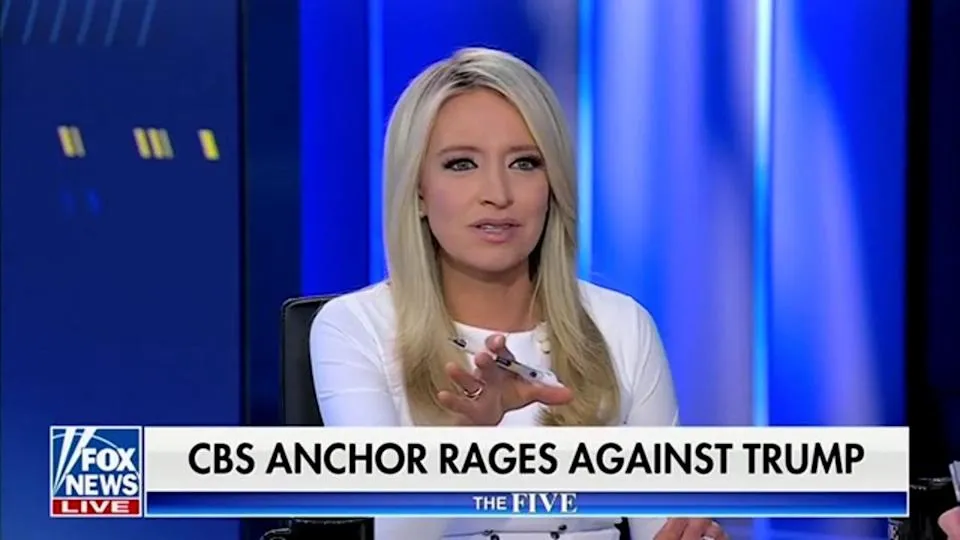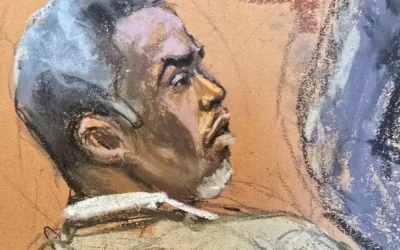Scott Pelley’s Warning Resonates in an Era of Political Division
In a recent speech at Wake Forest University, CBS News anchor Scott Pelley sparked a heated debate within media and political circles, where his call for responsible journalism amid the tempestuous waters of today’s political landscape went viral. As tensions rise in U.S. politics, Pelley’s comments offered a stark reminder of the importance of accountability in the media and its relationship with power.
The Context of Pelley’s Remarks
Pelley, known for his resilient journalism throughout his career, particularly during his time with CBS’s ’60 Minutes’, addressed the current political climate and warned of potential ramifications stemming from the rhetoric employed by former President Donald Trump and his supporters. His remarks were not only timely but also necessary, as they illuminated the dangerous trend of attacking the media and dissenters, which threatens the very fabric of American democracy.
Trump’s Influence on Media and Politics
Since Trump’s presidency, the relationship between political leaders and the media has become increasingly adversarial. The former president famously dismissed several mainstream media outlets as ‘fake news’, an assertion that resonated with many of his supporters but served to undermine journalistic integrity and the Fourth Estate’s crucial role in democracy. Pelley’s comments reverberated through this context, emphasizing the importance of truth in journalism.
A Divisive Response from Fox News
However, the backlash was almost immediate, particularly from conservative circles. Fox News personalities responded sharply to Pelley’s words. Some advocates on the network called for Pelley’s arrest and even suggested canceling ’60 Minutes’. This reaction illustrates the ongoing divide in American media; while many applaud Pelley’s clarity and courage, others view it as an attack on free speech.
What Pelley’s Speech Addressed
During his address, Pelley’s central theme revolved around the responsibility of journalists to hold those in power accountable—even when that power is held by former presidents. He warned that failing to do so could embolden autocratic tendencies among leaders who wish to suppress dissent and manipulate truth.
The Role of Media in Holding Power Accountable
In the U.S., journalists have historically played a crucial role in scrutinizing those in power. The Watergate scandal, for instance, showcased the importance of a free press in maintaining democratic integrity. Pelley’s warnings suggest that complacency and fear in the face of political might could set back the progress made in media accountability.
Social Media Reaction
Social media erupted following Pelley’s speech, with both supporters and detractors weighing in on his comments. Many users applauded his stance, using hashtags like #AccountableMedia and #TruthInJournalism to highlight the importance of integrity in reporting. On the flip side, critics used platforms to amplify their discontent and suggested Pelley’s position as emblematic of a biased media.
The Importance of Intellectual Discourse
Pelley’s speech also raises questions about the current state of discourse in America. With intense polarization, nuanced discussions are often drowned out by loud and overly simplistic narratives. Pelley’s willingness to confront the prevailing discourse speaks to the need for media professionals to foster a more intelligent and constructive conversation—one grounded in facts rather than incendiary rhetoric.
Can We Bridge the Divide?
The ongoing conflict between differing media narratives highlights a broader question: can the divide between media institutions and their audiences be bridged? By championing truthful reporting and reinforcing the values of a free press, individuals like Pelley contribute to the dialogue necessary for national healing and understanding. They assert the role of journalism not just as a commentator on political events, but as a necessary guardian of democracy.
Looking Ahead: The Future of Journalism
As we move forward, students of journalism and future media professionals will face immense challenges in navigating a landscape increasingly riddled with misinformation and public distrust. Pelley’s speech serves as both a challenge and a guide—to maintain the integrity of journalism and uphold the norms that protect freedom of the press.
Conclusion: The Call to Action
In conclusion, Scott Pelley’s remarks at Wake Forest University serve to highlight a pressing issue in the intersection of journalism and politics: the need for vigilance and accountability. The responses elicited by his speech signify more than mere opposition; they illuminate the ongoing struggle over the essence of free speech in America’s current milieu. As journalists and citizens alike engage in this dialogue, we are reminded that the stakes are high—not just for individuals, but for the very health of our democracy itself.
It is crucial to continue fostering discussions about the role of media in society, insisting on the necessity of truth and transparency as guiding principles. As the political landscape evolves, so too must our commitment to upholding the principles of journalism that allow for a robust, informed, and responsible society.







